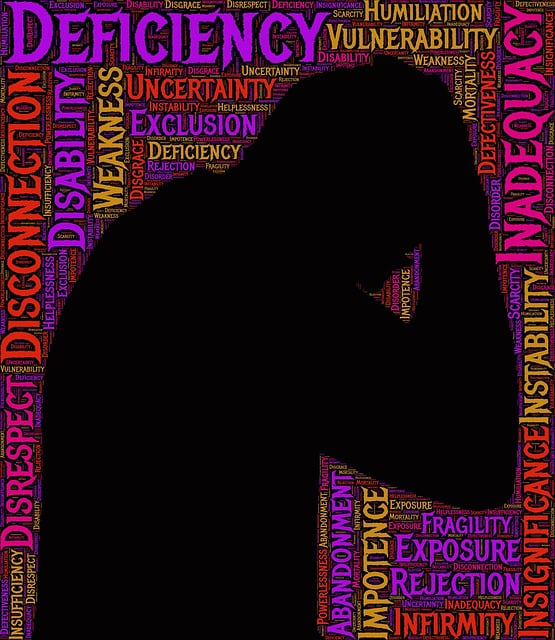Mental wellness programs for young children combine therapy, hypnosis, public awareness, journaling, and open dialogue to promote emotional expression and positive thinking. Hypnosis, a revolutionary tool, aids in coping strategy development, anxiety management, and emotional regulation through relaxation techniques. Standardized assessment tools are crucial for evaluating these programs, ensuring beneficial and evidence-backed interventions like mindfulness meditation tailored for young minds. Parent and caregiver feedback, including qualitative methods, complements quantitative measures to assess program effectiveness and foster empathy, self-awareness, and healthy coping mechanisms. Longitudinal studies track mental health progress, guiding professionals in refining strategies for effective, tailored care against issues like adolescent depression.
Mental wellness programs for young children have gained significant attention, leading to a need for robust evaluation methods. This article explores diverse strategies to assess these programs’ effectiveness, from standardized assessments to qualitative feedback and longitudinal studies. We delve into innovative approaches like hypnosis as a therapeutic tool for young minds, offering unique insights into program success. Understanding these evaluation methods is crucial for fostering mental health support tailored to children’s needs, particularly through therapy for young children and hypnosis.
- Understanding Mental Wellness Programs for Young Children
- The Role of Hypnosis in Evaluating and Treating Young Minds
- Standardized Assessment Tools for Measuring Program Effectiveness
- Qualitative Methods: Parent and Caregiver Feedback
- Longitudinal Studies: Tracking Progress and Outcomes
Understanding Mental Wellness Programs for Young Children

Mental wellness programs tailored for young children are designed to address the unique needs and challenges they face during their early years. These programs often incorporate therapeutic approaches such as therapy for young children and even hypnosis, which have proven effective in fostering positive mental health. Hypnosis, for instance, can help children develop coping mechanisms, enhance self-awareness, and manage anxiety or stress through guided relaxation techniques.
Beyond these direct interventions, public awareness campaigns development and initiatives focused on promoting positive thinking among children are integral parts of comprehensive mental wellness strategies. Encouraging open dialogue about emotions and mental health in schools and at home can create an environment where young individuals feel supported and empowered to express their feelings. Journaling exercises, as a form of Mental Wellness Journaling Exercise Guidance, can also be beneficial, helping children process their thoughts and emotions while cultivating positive thinking habits.
The Role of Hypnosis in Evaluating and Treating Young Minds

Hypnosis has emerged as a powerful tool in the evaluation and treatment of young minds, offering a unique approach to understanding and addressing mental wellness issues in children. This therapeutic technique allows practitioners to access the subconscious mind, providing insights into underlying thoughts, feelings, and behaviors that may not be readily available through traditional conversation-based methods. By inducing a state of deep relaxation and heightened focus, hypnosis enables children to process traumatic experiences, manage anxiety, and enhance their emotional regulation skills.
For young individuals struggling with social skills or mental health awareness, hypnosis can facilitate significant improvements. Compassion cultivation practices, for instance, can be guided during hypnotic sessions to foster empathy and kindness towards oneself and others. This not only promotes better interpersonal relationships but also contributes to overall Mental Health Awareness and resilience in children. The use of hypnosis in therapy for young children is a game-changer, providing a safe and supportive environment to navigate complex emotions and behaviors, ultimately paving the way for lasting positive change.
Standardized Assessment Tools for Measuring Program Effectiveness

Standardized assessment tools play a crucial role in evaluating the effectiveness of mental wellness programs, especially when tailored for young children. These tools offer a structured and consistent method to measure progress and outcomes. For instance, hypnosis-based interventions often incorporate standardized questionnaires designed to assess changes in emotional well-being, behavior, and cognitive function. Such assessments help therapists track a child’s development and adapt therapy sessions accordingly. By utilizing these methods, professionals can ensure that the program meets its objectives, whether focusing on inner strength development or addressing specific mental health risks.
Furthermore, these standardized tools provide valuable data for research and practice improvement. They allow comparisons between different programs, enabling mental health professionals to identify best practices and tailor interventions more effectively. For example, risk assessment methods can be employed to gauge potential challenges among participants, ensuring the safety and suitability of mindfulness meditation practices for young minds. This comprehensive evaluation ensures that therapy for young children is not only beneficial but also backed by scientific evidence.
Qualitative Methods: Parent and Caregiver Feedback

Parent and Caregiver feedback plays a pivotal role in evaluating mental wellness programs designed for young children, especially when incorporating innovative approaches like hypnosis. Qualitative methods provide a deep understanding of participants’ experiences, offering valuable insights into the program’s effectiveness. Through open-ended interviews or focus groups, parents can share their observations about their child’s behavioral changes, emotional expression, and overall well-being post-therapy sessions. This qualitative data enriches the evaluation by capturing subtleties in the children’s progress that might not be evident through quantitative measures alone.
Incorporating compassion cultivation practices and emotional intelligence training in therapy for young children can lead to significant improvements in mood management. Caregivers’ feedback on these aspects is invaluable, as they are often the primary observers of their child’s emotional shifts. By gathering insights from parents, evaluators can assess whether the program successfully fosters empathy, enhances self-awareness, and equips children with healthy coping mechanisms for managing their emotions. This feedback loop ensures that mental wellness programs remain sensitive to the unique needs and experiences of both children and their caregivers.
Longitudinal Studies: Tracking Progress and Outcomes

Longitudinal studies play a pivotal role in evaluating mental wellness programs, particularly when focusing on therapy for young children. By tracking participants’ progress over an extended period, researchers can assess the long-term impact and effectiveness of interventions. This approach allows for a deeper understanding of how treatments evolve and adapt to individual needs. For instance, hypnosis sessions aimed at depression prevention in adolescents could be monitored to see if improvements persist beyond the initial treatment phase, indicating lasting emotional healing processes.
These studies are invaluable for risk management planning among mental health professionals. They provide insights into what works best for different populations over time, helping therapists tailor their approaches and improve outcomes. This data-driven perspective is crucial in identifying successful strategies for depression prevention and overall mental wellness, ensuring that young minds receive the most effective care.
Evaluating mental wellness programs for young children involves a multi-faceted approach, from standardized assessment tools to qualitative feedback. As hypnosis emerges as a promising therapy for young minds, it offers a unique perspective on understanding and treating mental health issues early on. Combining quantitative measures with rich qualitative data, such as parent and caregiver feedback, enables a comprehensive evaluation of program effectiveness. Longitudinal studies further strengthen these evaluations by tracking progress and outcomes over time, providing valuable insights into the long-term impact of interventions like hypnosis in young children’s mental wellness.









